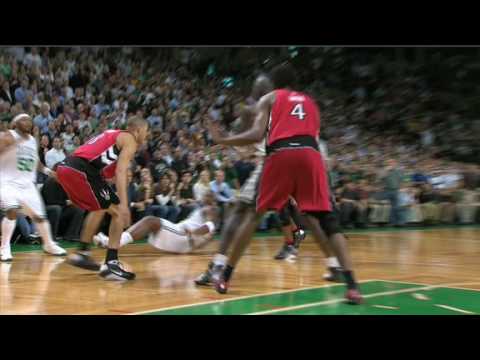What a great day to be an American. WrestleMania and the first meaningful baseball games of 2016 on the same day? Spray-tanned men in spandex underpants performing a greasy ancient love dance and weirdly mustached men in matching pajamas throwing balls at each other, just as the founders drew it up!
To celebrate this, the greatest day in sports nerd history, I offer a few cross over stories from baseball and pro wrestling past.
Of course, HOVG readers are already aware of the baseball credentials for the late, great, Macho Man Randy Savage, who was a fairly talented baseball player before his pro wrestling days.
Savage, who was somewhat of a reclusive and mysterious figure during his wrestling and post-wrestling days, does not seem to have talked terribly much about his baseball career after it was over.
There was also Bob Uecker, whose connection with pro wrestling is perhaps the most iconic. Here he is being rag-dolled by Andre the Giant:
[youtube https://www.youtube.com/watch?v=QvEYaX9ywQg]WrestleMania has often been somewhat celebrity driven, and in the early years as Vince McMahon attempted to find mainstream appeal for his (then) WWF, the shows were littered with cultural icons of the mid and late 80s. Uecker, who served in guest broadcast and interview roles, was a perfect fit for the formula. Able to mix campy humor with occasional seriousness, Uecker’s schtick was unique for baseball but perfect for wrestling, which made him great at both.
Today, the image of Uecker being “choked” by Andre is routine in WWE montages, an oft-cited example of the cultural crossover the event is meant to represent, right alongside Aretha Franklin’s famous WrestleMania 3 national anthem and Lawrence Taylor’s main event match versus Bam Bam Bigelow at WrestleMania XI.
Then there was Hank Aaron, who didn’t have anything to do with WrestleMania, but did play a short and history-altering part in the early years of Ted Turner’s World Championship Wrestling.
Aaron, who served somewhat in a figurehead executive capacity for Turner Broadcasting (a thank you from Turner for his years as a record-setting Brave and as baseball’s greatest living legend) was occasionally called on by WCW to add a measure of gravitas to various events.
This usually entailed standing in the ring to announce some tournament or champion, posing for photos and/or shaking hands with the winner, and little else. The point was to borrow some of Aaron’s legitimacy for the WCW brand which, at this point — while starting to compete with Vince McMahon’s juggernaut in the north — was still more deeply tied to the old-school wrestler’s mentality that the contests were “real”, and having the home run king there somehow was meant to amplify that.
But Aaron’s real influence on the wrestling business happened in a roundabout way. In the early 1990s, WCW was under the management of Bill Watts, an old-school southerner with a bad temperament and worse tongue. Watts time in WCW is remembered now for being outrageously out-of-date. This included such strange edicts as instituting a rule that wrestlers be disqualified for going over the top rope, something that — even 25 years ago — was several decades behind the times.
And Watt’s “Old South” thinking didn’t just stop with his wrestling rules.
In an interview with the Pro Wrestling Torch in 1991, he made several racially charged statements, including claiming that “all blacks are broke” and that he didn’t believe restaurants should have to serve black citizens if they did not want to.
Months later, when Hank Aaron caught wind of the interview, he campaigned Turner to fire Watts, who was eventually forced to resign in early 1993.
Interestingly, in 1992, Watts chose former Florida State Seminole football player Ron Simmons to become WCW World Champion, predating the first black WWE World Champion (The Rock) by six years. It’s hard to say whether Watts did that to try to placate Aaron and squash concerns about his racism or if he saw the talent in Simmons (who became something of a small legend in the business), but the move was not enough to prevent his inevitable removal.
Out of that mess came WCW’s new head, a young and unproven producer named Eric Bischoff. The rest, they say, is history.
And who could forget Pete Rose? Rose, who was inducted into the WWE Hall of Fame in somewhat of a gimmick (given that Pete Rose’s career for two decades has been trolling the Baseball Hall of Fame) has showed up and been tombstoned at two different WrestleManias.
[youtube https://www.youtube.com/watch?v=LxmvAFGbeFA]Rose also occasionally pops in to WWE television, especially when the show comes through Cincinnati. The benefit for Rose? Most likely money.
The appeal of the WWE Hall of Fame, which is a “hall of fame” only in the most broad definition (the Hall of Fame is not really merit-based, so much as “what would be the best marketing angle for us based” — try the Wrestling Observer Newsletter HOF for a more merit-based hall) is their aggressive merchandising and “legends” deal contracts they give to WWE Hall of Famers. The HOFers receive not only merchandising contracts related to their induction, but also receive a hefty payday for their appearance on the proceeding night’s WrestleMania, which is traditionally the biggest payday of the year for wrestlers, and anyone who gets camera time on the show receives a substantial one-time payoff.
—
And now a few predictions:
- Lesnar over Ambrose
- Reigns over Triple H
- McMahon over Undertaker
- Royals over Mets
Add The Sports Daily to your Google News Feed!
